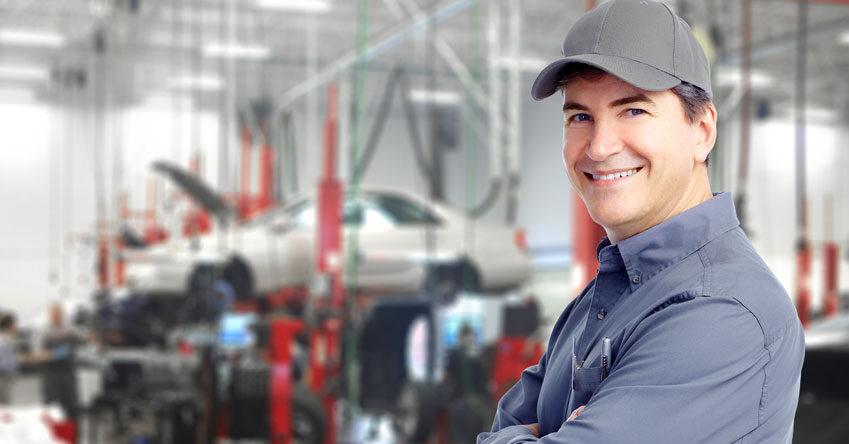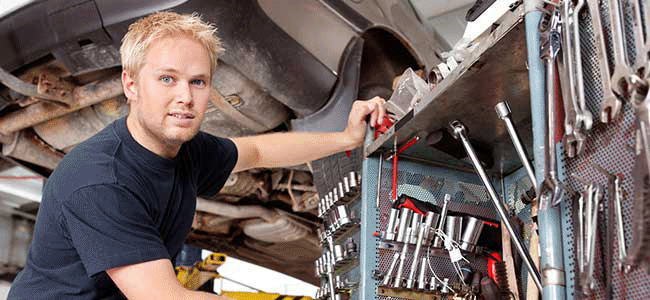
How to determine if I start my shop from scratch or buy an existing repair shop?
So you’ve decided it’s time to stop being a technician and become the shop owner. Congratulations, and TurnProTech is here to help you on your journey. The first thing you are probably wondering about is getting customers to your new shop. And one of the easiest ways is to buy an existing shop with an existing clientele. Or is it?
Buying a business is not as simple as buying a car; there are a lot of legal ramifications to purchasing an existing business. For example, you may be responsible for any bad repairs performed by the shop prior to your purchase of it, as well as any pending lawsuits.
However, buying an existing business is a lot easier than starting one from scratch because you are walking into an operating shop with cash flow, customers, equipment, and employees already in place. So there are significant benefits there. It all comes down to how fast you want to be up and running and how stable the business is that you are considering purchasing.
If you are considering purchasing an existing business, here are our recommendations for things you should investigate before making an offer.
- Is the auto repair shop profitable? You can’t merely take the owner’s word that they are profitable. As a potential buyer, you have every right to ask for proof of annual revenues and expenses. Ask to see the shop’s tax returns for the past five years to check for growth and consistencies in the business expenses.
- Look for legitimacy. How long has the repair shop been in business, and what is its current reputation? Buying a well-established company with an excellent reputation is an asset that can help make sure that your shop remains successful after your purchase. On the flip side, a newer, less established business or one with a poor reputation can be much riskier and challenging to overcome unless you are considering a full rebrand.
- What is the shop equipment condition? Is all the equipment inspected by a qualified expert to ensure and in good working condition? Ask about existing warranties and service contracts covering the equipment.
- Who is doing the work? If you are a technician turned business owner, you will learn that you will have little time for turning wrenches. So you will most likely be purchasing a business with existing mechanics. You should interview each mechanic and determine if you want them to stay on after buying the company. On the other hand, a business with great mechanics is also an asset.
- Who will take care of the business side of things? If you are a technician turned shop owner. In addition to accounting, payroll, and other financial tasks, you’ll have to deal with everything else, from marketing to property upkeep and community relations. If all these things are foreign to you, then you will need an office manager or part-time bookkeeper at a bare minimum. You will need to do payroll properly, and you will need to make your tax payments. Can the business afford this role on day one? Does the shop come with an existing bookkeeper?
- How will you grow the business? Few people buy a company to keep it going as-is. Most people are looking to increase revenues, perhaps multiple locations. Are there enough potential customers in the area? Is there enough physical space to add new repair bays or expand the work area? Figuring this out now could save you from some big problems in the future.
- Is there a non-compete? It would be best if you put something in place to ensure that the seller isn’t going to open up another shop and steal away all the customers that you purchased.
- Are the reviews and reputation in good shape online? A lot of shop owners neglect even to claim their Google my business page, let alone ask customers for reviews. Instead, they only get the few angry customers (that happens to every shop) who leave bad reviews. If the business has only three or four reviews online, but they are all bad, you need to consider this. Changing the digital review footprint of the company will take time unless you do a complete rebrand.

Should you start your shop from scratch?
Ok, so we gave you some pros and cons of buying an existing shop business, so what about starting from scratch? Here are our suggestions for determining if you should start from scratch.
- How much cash do you have at startup? If you are just a disgruntled technician who has taken out a lease on a shop building with no money in the bank, you are putting yourself at risk of failure. It could take a long time to build up enough of a client base to pay your bills. How long can the business survive with no revenue coming in, or very little or unstable income? You may be bleeding cash for a while as you get started.
- Do you have relationships with other shops or your neighboring shops? One way to get customers is to do some work for existing shops near yours. For example, if you have purchased an alignment machine and there are a few body shops nearby, you may want to work out an exclusive deal with that shop to do alignments on all their repairs. Not everybody shop has the room for an alignment machine, which they may use a couple of times a week. Or perhaps you are good at diagnostics, and you want to offer that service to existing shops.
- Do you have enough money to advertise? Marketing for a new shop is more important in the beginning than it is down the road when you have repeated business and a good reputation. With mechanics, reputation is everything. So until you have one, you need to solicit those first customers. Your marketing expenses should be higher in your startup phase.
- Do you have the stamina for a startup? If you are a young person just getting started, you will have more energy, time, and focus on devoting the time it will take to get your shop off the ground. If you are an older person with family obligations and lots of responsibilities, it may be more challenging to put in the hours required in the startup phase. It would be best if you weighed this against the purchasing decision.
Ultimately nobody can tell you whether buying an existing shop or starting one is the right thing for you. There are just too many variables. However, we have outlined most of the critical consideration in making your decision. When you are ready to move forward, consider taking TurnProTech’s auto repair shop training to be fully prepared for running your shop on day one. It is a small investment that can save you thousands of dollars in mistakes. To learn more, click here.


